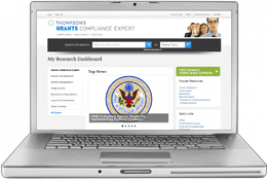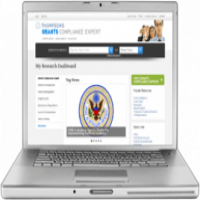Sneak Preview: GAO Calls for Actions To Limit Head Start Fraud

(The following was excerpted from a recent article in the Federal Grants Management Handbook.) The Department of Health and Human Services (HHS) Office of Head Start (OHS) plans to conduct a fraud risk assessment for the Head Start program, which will address the effects of fraud on program performance, and will collaborate with other HHS and Administration for Children and Family officials on methods to prevent potential instances of fraud, in response to a recent Government Accountability Office (GAO) recommendation.
In 2010, GAO conducted undercover tests by submitting forms to Head Start centers that appeared to be sent from families seeking Head Start assistance. At that time, GAO reported numerous instances in which the centers, which receive Head Start grants, did not comply with eligibility verification and enrollment requirements. For example, staff at Head Start centers intentionally disregarded income thresholds to qualify for Head Start, and in the case of two Head Start grantees, the average number of students who attended class was significantly lower than the number of students the recipients reported as enrolled in class. Because Congress has appropriated more than $10 billion for Head Start programs for federal fiscal year 2019, in which some 1,600 Head Start grant recipients would serve about 1 million children, Congress requested GAO to determine if these fraud risks are still present.
In its follow-up report released on Oct. 2, GAO explained that it again submitted covert forms to Head Start centers and again found a lack of controls related to eligibility screening and detecting potential fraud. Posing as fictitious families, GAO attempted to enroll children at 15 selected Head Start centers in metropolitan areas (e.g., Los Angeles and Boston). GAO provided incomplete or potentially disqualifying information during the enrollment process, such as pay stubs that exceeded income requirements, yet only seven of the 15 centers correctly determined GAO’s fictitious families were not eligible. At three centers, Head Start center staff encouraged GAO’s fictitious families to attend without following all eligibility-verification requirements, and GAO found potential fraud at five other centers. For example, GAO explained that in three cases, Head Start center documents showed that GAO’s fictitious applications had been doctored to exclude income information GAO had provided, which would have shown that the fictitious family’s income was above the income-eligibility threshold.
“Through our current review, we have found that systemic vulnerabilities in program controls persist, putting the program at risk for fraud and improper payments,” GAO said. “Further, OHS has not performed a comprehensive fraud risk assessment to consider the full range of fraud risks it faces and how to address them. Until OHS conducts a comprehensive fraud risk assessment, it may not understand the likelihood and impact of fraud risk facing the program and may not adequately address those risks.”
(The full version of this story has now been made available to all for a limited time here.)
Join us for our following Federal Grants Forums:
Federal Grants Forum: Dallas, TX | October 16 – 18, 2019
Federal Grants Forum: Charleston, SC | February 5 – 7, 2020
Federal Grants Forum: Portland, OR | May 13 – 15, 2020
Federal Grants Forum: Chicago, IL | August 12 – 14, 2020
Federal Grants Forum: Denver, CO | October 7 – 9, 2020
Learn more at http://grants.thompson.com/conferences.aspx.



